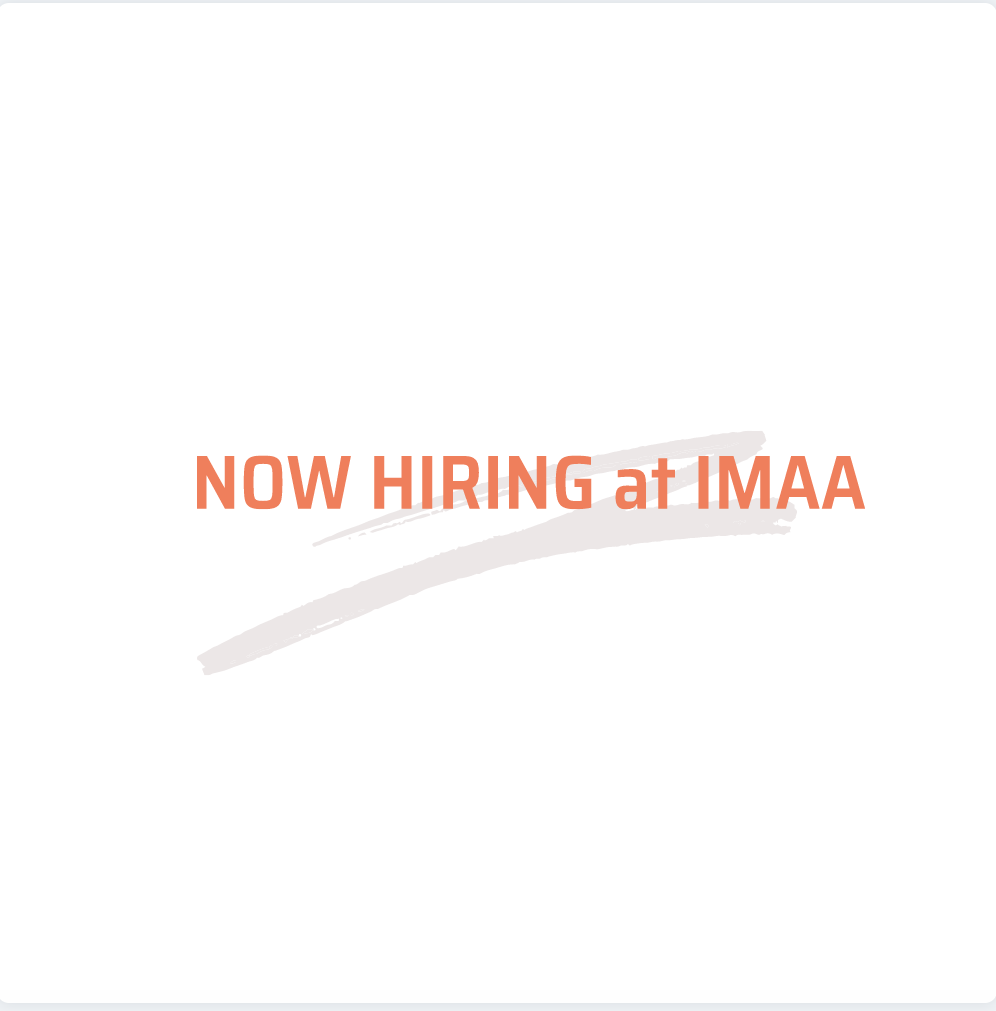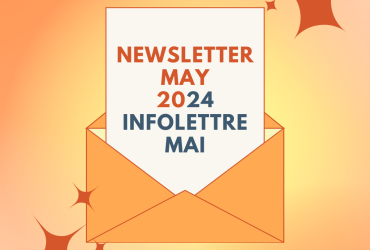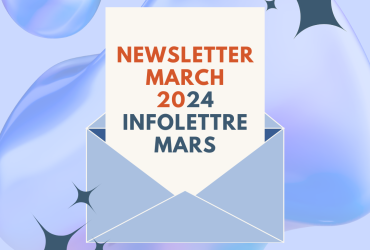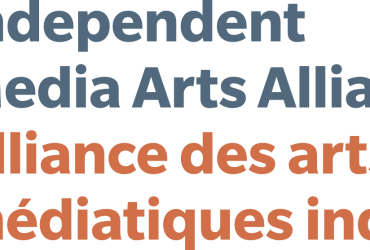
Call for Applications: Mitacs Fellowship
— interConnect: Developing collective digital intelligence in the broad visual and media arts sector
- Application deadline: October 31, 2022
- Anticipated start date: January 9, 2023
- Conditions: 8 months, 15-20h/week, 35$/h à 40$/h
- Level: PhD (or MA with relevant work experience)
- Type of work: Remote
Us [About IMAA]
The Independent Media Arts Alliance (IMAA) is a member-driven non-profit national organization working to advance and strengthen the media arts community in Canada. Representing over 100 independent film, video, audio, and new media production, distribution, and exhibition organizations in all partsprof the country, the IMAA serves over 16,000 independent media artists and cultural workers.
We [The Project]
Context
interConnect comes from feedback among arts organizations that suggests that the Digital Strategy Fund’s (DSF) fundamental goals have yet to be fully met. While much important knowledge is being generated thanks to the Fund, the dissemination & concrete application of its results remain incomplete and unevenly distributed.
Within the fields of visual arts, media arts, digital arts & contemporary craft, the majority of organizations and artists have yet to benefit substantially from this work. A relatively limited number of media and other types of arts organizations across Canada are undergoing digital transformations and enhancing their effectiveness & sustainability in their respective communities. If these successes could be more widely shared, these transformative impacts would be amplified across the Canadian arts sector.
The People involved
- Project Team: IMAA’s small team (notably National Director, Project Manager, and Communication Specialist).
- Oversight Committee: This committee guides the project.
- Research Team: The Mitacs Researcher(s) and their Academic Supervisor.
- Knowledge Connectors: Experts serving as the link between participants and the research team.
- Cohort Participants: Art administrators and artists who will engage in the co-learning process.
Research Design Overview
This qualitative research project consists of secondary research and analysis and co-learning components. The findings of each component will be shared upon completion on a Knowledge Base to be determined.
Research goals
In collaboration with the IMAA Project Team and Academic supervisor, the Mitacs Researcher will be responsible for the secondary research component of the project, and will support the co-learning component. With this project, our general objective is to consolidate and share the impacts of digital capacity building efforts currently underway across the Canadian arts sector.
The Mitacs Researcher is expected to act as a leader within IMAA’s project and take on roles such as supervising research assistants for tasks such as gathering quantitative and qualitative data on previous projects and organizations. This research should ideally be articulated with the candidate’s own research and academic interests. The responsibilities of the Mitacs researcher will be refined according to the interests and expertise of the selected candidate.
The project team has also established 2 sub-objectives and related activities:
1. Establish and annotate a repository of previous projects
There is a lot of curiosity within the sector about the scope, outputs, and impacts of DSF projects undertaken. In response, our project will attempt to answer the following questions: What has been achieved? What is available? Who has done projects of interest? What might not have been researched?
Activities:
- Data collection methods
i. Scope: DSF projects between 2018-2023 will be identified and coded for themes, outputs and impacts. This will be compared to key policy frameworks such as the Department of Canadian Heritage Creative Canada Framework and the Quebec Plan culturel numérique. The goal will be to identify best practices and policies that will be useful to our members.
ii. Data collection methods: In addition to sourcing DSF project descriptions and reports from various institutional sources and related community organizations, the researcher will design and undertake a select number of semi-structured interviews with DSF project leaders and policymakers, as well as design a survey for broader use in the independent media and arts sectors.
iii. Determine high priority projects to be documented: We are dealing with a lot of data, where should we devote our energy? The researcher will use these case studies to generate knowledge that could be translated and adapted to the realities of other arts organizations.
- Documentation
i. Establish a documentation structure: Focusing on community usability and the fostering of transparency.
ii. Create an accessible and shareable dataset (repository): And develop a strategy to make it interoperable with existing datasets and repositories including Wikidata (Wikimedia), Artifex (MassCulture), Ecosystems Map (ArtsPond), and MAP-TN (MANO).
2. Support the co-learning cohorts
The main component of the project is the coming together of members from the arts sector around topics of interest to share, discuss, and learn.
In advance of the creation of the cohorts, the Research Team will work to ensure their topics are relevant and that the participants have appropriate tools to work together. The Research Team will also provide:
Activities:
- Thematic advice
i. Cohort topics, establish high priority needs of the sector: The previous project research and review should inform this activity, as well as a literature review of digital maturity/needs assessment.
ii. Provide appropriate material to cohorts: Such as readings, examples, etc.
- Technological and structural advice
i. Advise on the knowledge management tools: Such as citation management software.
ii. Help establish a taxonomy for the project: Create a relevant tag structure to be used through the project.
You [The expected researcher]
This project is a great opportunity to work with a dynamic community partner! You should be a Doctoral student currently enrolled in a post-secondary Canadian institution, though a Master’s student with relevant work experience would be considered.
The successful candidate is expected to focus on research into digital strategies, cultural politics, and/or art organizations. Research outcomes will directly inform the future practices of Canadian arts organizations.
We invite applications from, in particular, interdisciplinary scholars who are currently enrolled in a doctorate in communications, media studies, library sciences and information studies, digital media, or art history, and have expertise in such fields such as Digital Humanities, community-based participatory research, and arts management. The position requires that the candidate has strong skills and experience in knowledge translation and dissemination, and familiarity with Canadian arts organizations. Required soft skills include outstanding writing and communication skills, a strong collaborative working style, good time management, and adaptability.
This position will include opportunities to produce publications and to directly contribute to content design for IMAA. It is expected that the candidate will divide their time between their University and IMAA (i.e. 15-20h/week each).
Conditions
Funding
This position will be compensated through a MITACs fellowship. Find more information about MITACs funding here: https://www.mitacs.ca/en/programs/accelerate/fellowship
Duration
Eight months. Please note that the MITACS Fellowship is contingent on the selected candidate writing a successful proposal.
Requirements
- Demonstrate a very good knowledge of the independent media arts sector in Canada
- Research interests in digital transformation in the fields of arts, culture or media
- A first-hand understanding of the needs and realities of not-for-profit employers in the arts and culture sectors is an asset
- Experience working within anti-oppression and equity frameworks is an asset
- Must be well organized and be comfortable to work in a self-directed and autonomous manner
- Multilingualism is an asset, English will be the primary language of project work.
How To Apply
Please send an academic CV and a letter with the following elements:
- Your presentation, including your relationship to the independent media arts sector.
- A description of your research interests and academic background that highlight your interest in our project.
- If you already have a potential Academic Advisor for this project, please describe your relationship. We also have academic partners who would be interested in supervising the Mitacs Researcher.
All proposals should be sent to Benjamin J. Allard at proj@imaa.ca by October 31, 2022. Applications should be submitted in English and have “Mitacs Research candidature – [your name]” as a subject line.
- If you have any questions or accessibility needs regarding the submission of an application, please contact (in French or English) Benjamin J. Allard (il/him) at proj@imaa.ca.
Anticipated Selection Schedule
October 12, 2022: Request for proposals (RFP) open
October 31, 2022: Deadline for candidates to submit applications
November 7, 2022: Selection of top candidates
November 14, 2022: Submission of the Mitacs application (written in collaboration with the Research Team and IMAA) / Notification to unsuccessful applicants
January 9, 2023: Anticipated start date
Bibliography
Scholarly framing and frameworks are to be determined with the Mitacs research and Academic supervisor.
Beauregard, D. and Paquette J. Ed. (2022) Canadian Cultural Policy in Transition. Routledge. https://doi.org/10.4324/9781003134022
Bourcheix-Laporte, Mariane. (2020) Enquête sur les besoins numériques des centres d’artistes autogérés du Québec. Regroupement des centres d’artistes autogérés du Québec. https://reseauartactuel.org/wp-content/uploads/rcaaq_enquete_bes_num_octobre2020.pdf?x20881
Estermann B. and Julien F. (2019) A Linked Digital Future for the Performing Arts: Leveraging Synergies along the Value Chain. Canadian Arts Presenting Association (CAPACOA) in cooperation with the Bern University of Applied Sciences. https://capacoa.ca/documents/research/LDF_Report_2019.pdf
Grow Twillingate Inc. (2021) Innovation at the edge. Towards a digital strategy for rural arts and heritage in Canada. https://www.growtwillingate.com/post/innovation-at-the-edge
Nordicity. (2022) Evaluation of the Canada Council for the Arts’s Digital Strategy Fund and Sectoral Needs Assessment, Executive Summary. 2022. https://canadacouncil.ca/research/research-library/2022/07/evaluation-of-the-digital-strategy-fund-and-sectoral-needs-assessment
Observatoire de la culture et des communications du Québec (2017). État des lieux sur les métadonnées relatives aux contenus culturels. Gouvernement du Québec, Institut de la statistique du Québec. https://bdso.gouv.qc.ca/docs-ken/multimedia/PB01600FR_MetadonneesCulturel2017H00F00.pdfPayette, A (2000). Le codéveloppement : une approche graduée. Interactions 4:2. http://www.actiongardien.org/file/si691213/download/Codeveloppement%20PAYETTE_Adrien-fi13123028.pdf
Articles
Newsletter May | Infolettre mai 2024
This month’s news at a glance –» Click here! IMAA NEWS✦ REMINDER: IMAA & NIMAC...
Read moreIMAA Travel Subsidies – Opened until April 28
IMAA TRAVEL SUBSIDIES (General)APPLY HERE!IMAA BIPOC TRAVEL SUBSIDIESAPPLY HEREDeadline to Apply : April 28- - -IMAA...
Read moreNewsletter April | Infolettre avril 2024
This month’s news at a glance –» Click here! IMAA NEWS✦ Open Letter re: Cuts...
Read more


